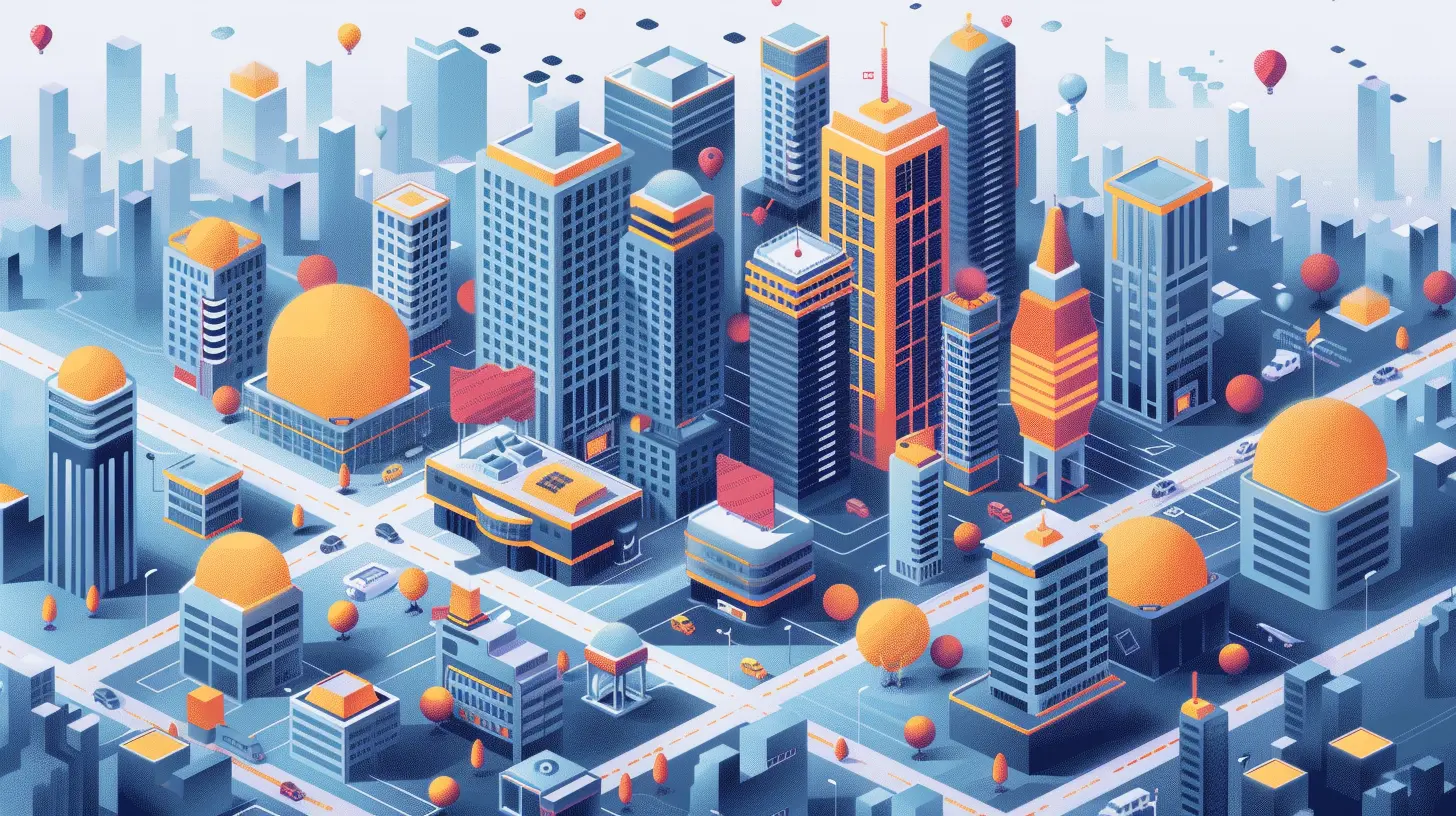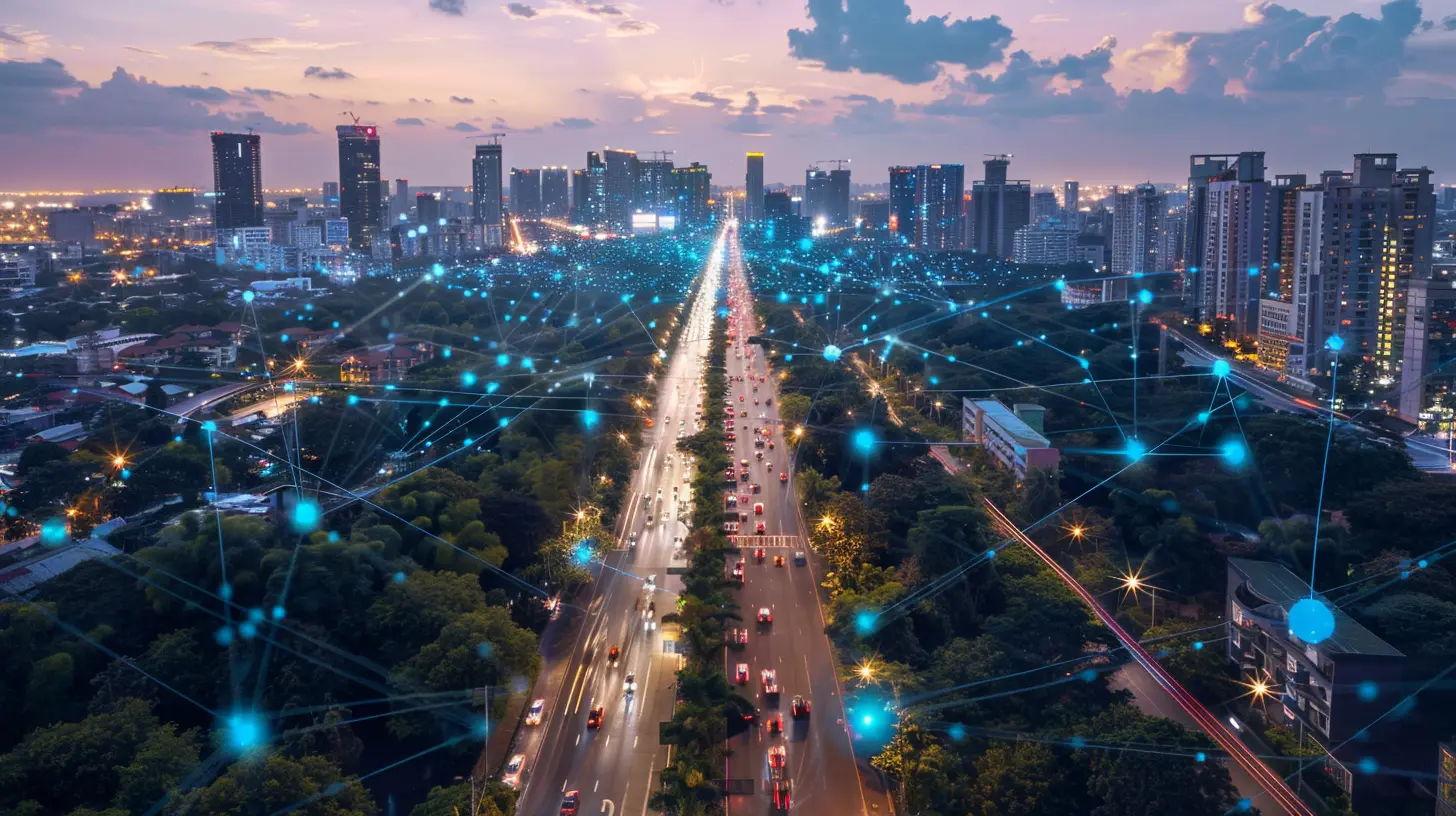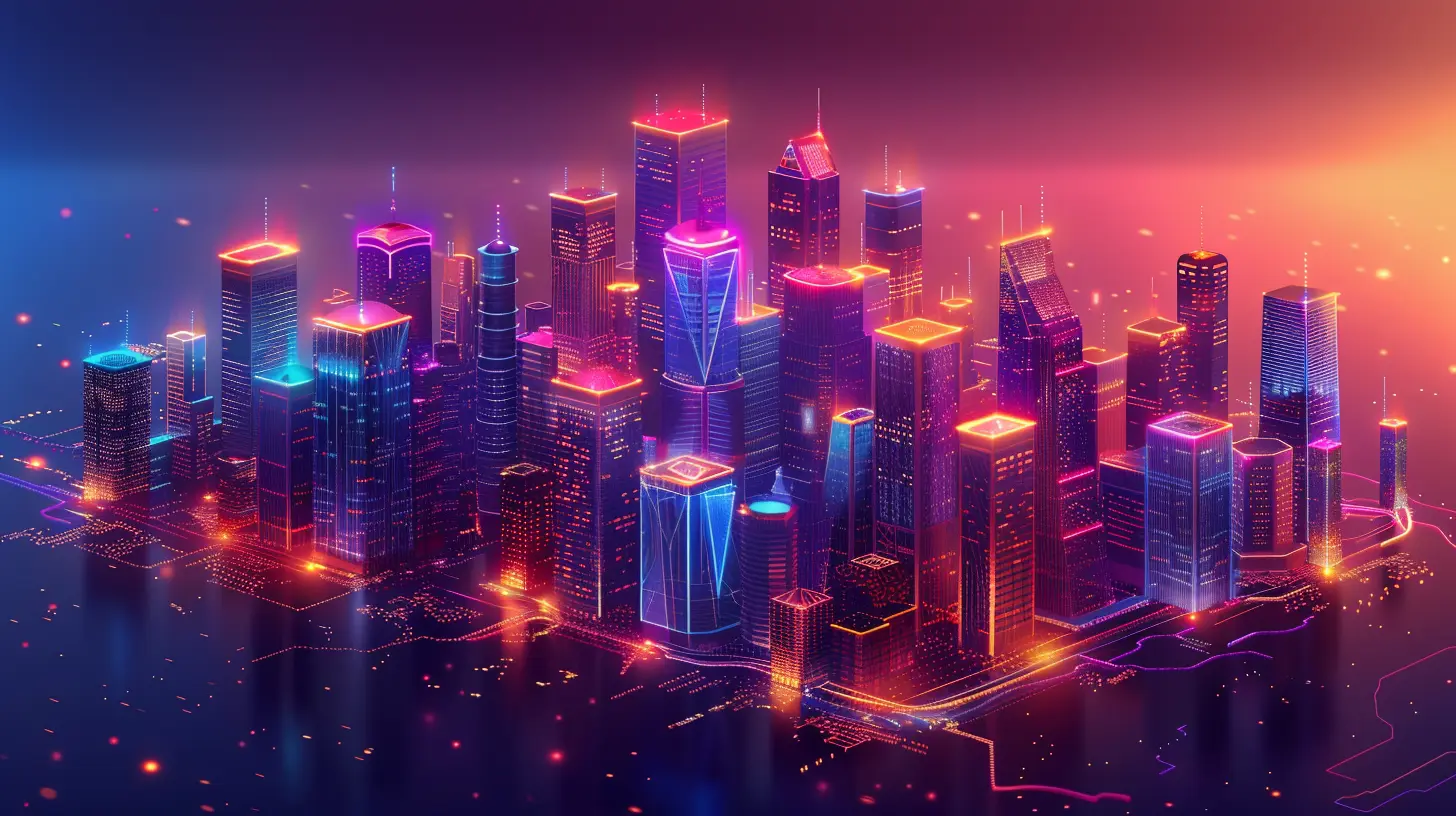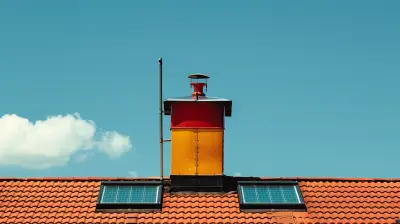How Tech Startups Are Pioneering the Future of Smart Cities
26 August 2025
As cities around the world continue to grow, the demand for smarter, more efficient urban environments has skyrocketed. Enter tech startups—nimble, innovative, and always looking to disrupt the status quo. These small but mighty companies are playing a crucial role in shaping what we now call "Smart Cities."
From autonomous vehicles to AI-driven traffic management, tech startups are at the forefront of this transformation, creating solutions that are making cities not only more livable but also more sustainable. In this article, we’ll dive deep into how tech startups are pioneering the future of smart cities, and why you should be paying attention to this revolution.
What Exactly Is a Smart City?
Before we get into how startups are changing the game, let’s first clarify what a smart city actually is. A smart city uses technology, data, and connectivity to improve the quality of life for its residents. Think of it as a city that’s not just built out of concrete and steel but is also "wired" to be intelligent. The goal? To make urban living more efficient, sustainable, and comfortable.Some key features of a smart city include:
- Smart transportation: Autonomous vehicles, electric scooters, and AI-driven public transit systems.
- Energy efficiency: Smart grids that optimize energy usage and reduce waste.
- IoT (Internet of Things): Sensors and connected devices that monitor everything from air quality to traffic flow.
- Data analytics: Using big data to make real-time decisions that improve city management.
- Sustainability: Green technologies that reduce a city’s carbon footprint.
So, how are tech startups driving innovation in all these areas? Let’s take a closer look.
The Role of Tech Startups in Building Smart Cities
1. Innovative Solutions to Old Problems
Startups are known for thinking outside the box, and this is exactly what smart cities need. Traditional urban infrastructure is often outdated, cumbersome, and inefficient. Tech startups are introducing innovative solutions that break away from conventional methods.Take Zipline, for example. This startup is using autonomous drones to deliver medical supplies to remote areas, effectively solving the problem of poor road infrastructure. While this might not seem like a direct smart city application, the technology behind it can easily be adapted for urban environments to deliver goods faster and reduce traffic congestion.
Another example is Lime, which offers electric scooters for short-distance travel. By placing eco-friendly transportation within arm’s reach of urban dwellers, Lime is helping to reduce the reliance on cars, thereby cutting down on emissions and traffic jams.
2. Data-Driven Decision Making
Data is at the heart of every smart city, and tech startups are harnessing the power of big data to make urban environments more responsive and efficient. Through sensors, IoT devices, and advanced analytics, startups are helping cities collect and analyze data in real time.For instance, Placemeter uses computer vision to analyze pedestrian and vehicle traffic patterns. This data helps city planners make informed decisions about everything from traffic light timing to pedestrian crosswalks. By leveraging data, cities can adapt to the needs of their residents more effectively, improving everything from mobility to public safety.
Startups like Civis Analytics are also using data to improve urban planning. Civis gathers and analyzes data on population trends, housing patterns, and even economic development, helping cities design better policies and allocate resources more efficiently.
3. Sustainable Urban Solutions
Sustainability is a cornerstone of any smart city initiative, and tech startups are leading the charge in creating eco-friendly solutions. Whether it’s reducing energy consumption or cutting down on waste, startups are coming up with innovative ways to make cities more sustainable.One standout example is Opus12, a startup that turns carbon dioxide (CO2) into useful products like plastics and fuels. Given that cities are major sources of CO2 emissions, technology like this could play a huge role in reducing urban carbon footprints.
Another player to watch is Solar Roadways, which is developing solar panels that can be embedded into roads. These panels can generate electricity from the sun, powering streetlights, traffic signals, and even homes. Imagine driving on a road that not only takes you from point A to B but also helps power the city around you!
4. Smart Mobility Solutions
If there’s one thing that frustrates city dwellers, it’s traffic. The good news? Startups are working on that too. From autonomous vehicles to bike-sharing platforms, tech startups are making urban transport smoother, faster, and greener.One startup leading the charge is Waymo, an autonomous driving technology company. Waymo's self-driving cars promise to reduce accidents, lower emissions, and ease traffic congestion. Imagine a future where you can summon a self-driving car through an app, and it takes you to your destination while you relax or get some work done.
Then there’s Bird, another electric scooter startup that’s making it easier for people to get around without using a car. By offering a convenient and eco-friendly alternative to gas-guzzling vehicles, Bird is helping cities reduce traffic and emissions.
Tech startups are also innovating in public transportation. Moovit, for example, is a mobility-as-a-service (MaaS) app that integrates different types of transportation into a single platform. Whether you want to take a bus, bike, or rideshare, Moovit helps you plan the most efficient route, all while reducing your carbon footprint.
The Role of AI in Smart Cities
Artificial Intelligence (AI) is another game-changer for smart cities, and startups are at the forefront of its implementation. AI is being used to predict traffic patterns, optimize energy usage, and even enhance public safety. In many ways, AI is the "brain" that makes a smart city truly intelligent.For example, Vivacity Labs uses AI to monitor traffic flow and adjust the timing of traffic signals in real time. This helps reduce congestion and improve road safety. The system can even prioritize emergency vehicles, clearing the way for ambulances and fire trucks to get to their destinations quickly.
In the realm of public safety, startups like ShotSpotter are using AI to detect gunshots in real time and notify law enforcement, improving response times and potentially saving lives. By integrating AI into the fabric of the city, startups are making urban environments not just more efficient, but safer too.
Challenges Faced by Tech Startups in the Smart City Space
Of course, it’s not all smooth sailing. Startups venturing into the smart city space face several challenges, from regulatory hurdles to scaling their solutions. Cities often have complex regulatory frameworks that can make it difficult for startups to deploy their technologies. Additionally, the sheer scale of urban environments means that startups need to ensure their solutions can handle large volumes of data and users.Another challenge is funding. While smart city startups are innovative, they often require significant capital to get their projects off the ground. Fortunately, many venture capitalists and governments are recognizing the potential of these technologies, and funding is increasingly flowing into the space. But for smaller startups, securing the necessary resources can still be a major hurdle.
The Future of Smart Cities: What’s Next?
So, what does the future hold for smart cities and the tech startups driving them? One thing is clear: the momentum is only growing. As cities continue to expand and face new challenges, the demand for smart technology will rise.We can expect to see even more integration of AI, IoT, and data analytics in urban environments. Autonomous vehicles could become the norm, and renewable energy solutions may power entire cities. Startups will continue to lead this charge, offering the agility and innovation needed to solve these complex problems.
Moreover, collaboration between startups, governments, and larger tech companies will be crucial. No single entity can build a smart city alone, and partnerships will be key to ensuring that these technologies are deployed in a way that benefits everyone.
Conclusion
Tech startups are not just dreaming about the future of smart cities—they are building it. From sustainable energy solutions to AI-powered traffic management, these innovators are creating the tools that will make our cities more efficient, sustainable, and livable. And while challenges remain, the future looks bright.As urban landscapes continue to evolve, the role of tech startups in pioneering the future of smart cities will only become more important. So, whether you’re a city dweller, an entrepreneur, or just someone interested in tech, it’s worth paying attention to these trailblazers. They’re not just shaping the cities of tomorrow—they’re shaping the way we live.
all images in this post were generated using AI tools
Category:
Tech StartupsAuthor:

Michael Robinson
Discussion
rate this article
1 comments
Sheena McAllister
This article effectively highlights the innovative ways tech startups are shaping smart cities. Their focus on sustainability and enhanced urban living demonstrates the potential for technology to transform everyday environments. It’s exciting to see how these pioneering efforts can create more efficient, inclusive, and resilient urban spaces for the future.
September 2, 2025 at 4:59 AM

Michael Robinson
Thank you for your insightful comment! I'm glad you found the article's exploration of tech startups' impact on smart cities and sustainability engaging. Exciting times lie ahead for urban living!


